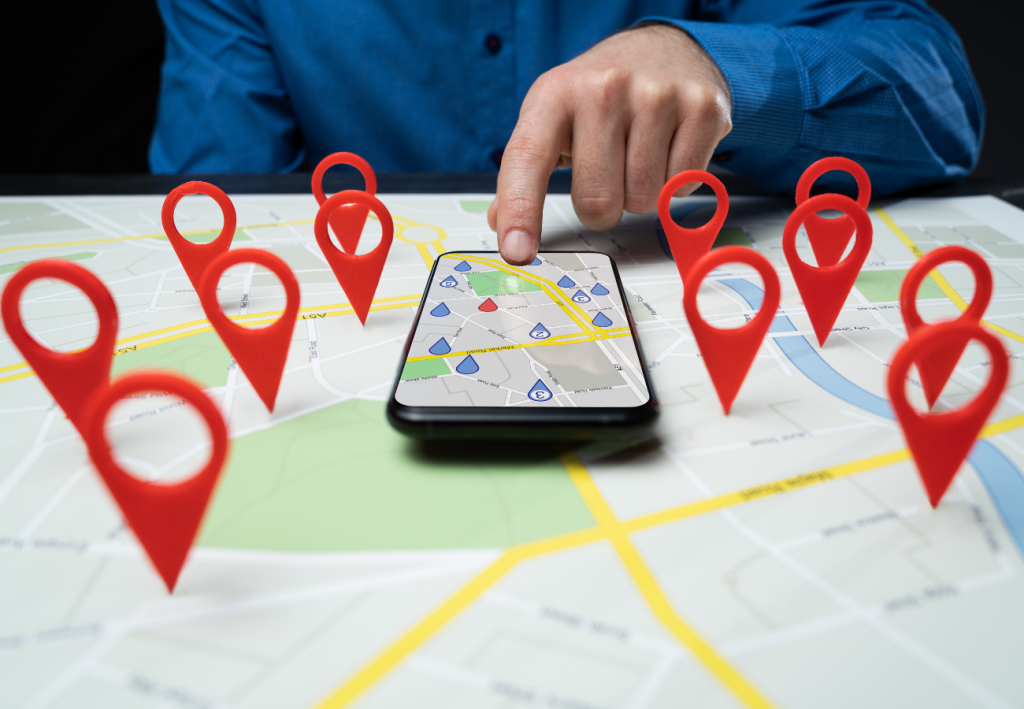Picture this: someone’s walking down your street with a cracked phone screen, desperately googling “phone repair near me.” Or maybe they’re new to town, searching for “best coffee shop open now” while standing three blocks from your cafe. What Is Local SEO and Why It Matters in 2025 These aren’t just random searches – they’re golden opportunities that could walk through your door in the next 20 minutes.
That’s local SEO in action, and if you’re not dominating these “near me” moments, you’re basically invisible to the customers who matter most.
The Rise of Local Search: Why It’s Bigger Than Ever
Here’s a stat that should wake up every small business owner: “near me” searches have exploded by 900%. Not 90%. Nine hundred percent. Nearly half of all Google searches now have local intent, and here’s the kicker – 88% of people who search locally actually visit or call a business within 24 hours.
Think about that for a second. These aren’t tire-kickers browsing from their couch. These are people with their car keys in hand, credit cards ready, looking for exactly what you’re selling.
But here’s where it gets interesting – local SEO isn’t a one-size-fits-all game. What works for a pizza shop in Phoenix won’t work for one in Pune or Dubai. Each market has its own digital DNA, and smart business owners are learning to speak their customers’ language.
The Global Local Playbook: USA vs India vs UAE
USA: The Research-Obsessed Market
Americans are professional researchers. They’ll cross-reference your Google Business Profile with Yelp, check your Better Business Bureau rating, read every review twice, and probably Google your owner’s name for good measure. All before deciding whether to call you.
This means your local SEO game needs to be flawless. One inconsistent phone number across platforms? Dead. Outdated hours on Google? Dead. A single bad review without a professional response? You guessed it – dead.
The winning formula: laser-focused keywords like “emergency plumber in Capitol Hill Seattle,” industry-specific directory listings (lawyers need Avvo, restaurants need TripAdvisor), and content so neighborhood-specific it makes locals nod in recognition.
India: Mobile-First, Multilingual Madness
Indians live on their phones and search in whatever language feels right at the moment – sometimes English, sometimes Hindi, often a mix of both. They want hyper-local results too: not just “restaurant in Mumbai” but “best biryani near Cyber City Gurgaon Phase 2.”
Voice search is huge here. People ask their phones conversational questions like “Kahan hai sabse paas pharmacy?” (Where’s the nearest pharmacy?). Your content needs to sound like actual human speech, not robotic keyword stuffing.
Plus, Indians trust local directories like Justdial and Sulekha more than Western platforms. Get listed there, keep everything updated, and create content around local festivals and events. When Diwali approaches, that “best sweets shop near me” search could be your goldmine.
UAE: Bilingual Sophistication
The UAE is where cultural complexity meets high expectations. Your customers might search in English on Monday and Arabic on Tuesday. They expect polished, professional experiences but want extreme location specificity.
We’re talking “Italian restaurant in Dubai Marina JLT Block A” level of detail. Generic won’t cut it. You need separate landing pages for different Emirates, bilingual content that doesn’t feel translated, and a mobile experience so smooth it would make an iPhone jealous.
The Numbers That Should Convince Any Skeptic
Local SEO isn’t just feel-good marketing fluff. The ROI is real:
- 78% of mobile local searches result in a purchase within a day
- Businesses see $2.50+ return for every dollar spent on local SEO
- Some campaigns hit 500% ROI
- A complete Google Business Profile makes you 2.7x more trustworthy
These aren’t vanity metrics. These are bottom-line, pay-the-rent, keep-the-lights-on numbers.
What’s Coming Next: AI and the Future of Local Search
Local SEO is evolving fast. AI is getting better at understanding natural language queries, which means your content needs to sound more human and less like keyword soup. User-generated content – reviews, photos, social media mentions – is becoming even more important as a ranking factor.The businesses winning in this new landscape are the ones encouraging customers to share their experiences. Not through annoying “please review us” emails, but by creating experiences worth talking about.
Hyperlocal targeting is also intensifying. Soon, you might not just optimize for your city or neighborhood, but for specific streets or even building complexes. The more precisely you can match what someone nearby is searching for, the bigger your advantage.
Ignore Local SEO at Your Own Risk
Every day you delay optimizing for local search, you’re handing customers to competitors who figured this out months ago. Local SEO isn’t a nice-to-have anymore – it’s non-negotiable for any business that serves local customers.
The beautiful thing about local SEO is that it rewards authenticity. You don’t need to trick algorithms or game the system. You just need to be genuinely helpful to your neighbors, consistent with your information, and present when they need you most.
Start with your Google Business Profile today. Update your website with local keywords tomorrow. Get listed in relevant directories next week. Respond to that review you’ve been avoiding.
FAQ
USA: Flawless consistency across platforms like Google and Yelp for research-obsessed customers. India: Mobile-first, multilingual approach, strong on voice search and local directories like Justdial. UAE: Sophisticated, bilingual strategy with extreme location specificity for English and Arabic searches.
Absolutely. 78% of mobile local searches lead to a purchase within a day, and businesses typically see $2.50+ return for every dollar spent. A complete Google Business Profile also boosts trustworthiness by 2.7x.
AI is enhancing natural language understanding, requiring more human-sounding content. User-generated content (reviews, photos) is becoming a crucial ranking factor, rewarding businesses that create shareable experiences.
The most critical first step is to start with your “Google Business Profile”. Ensure it's updated, then focus on local keywords on your website, getting listed in relevant directories, and responding to reviews.

